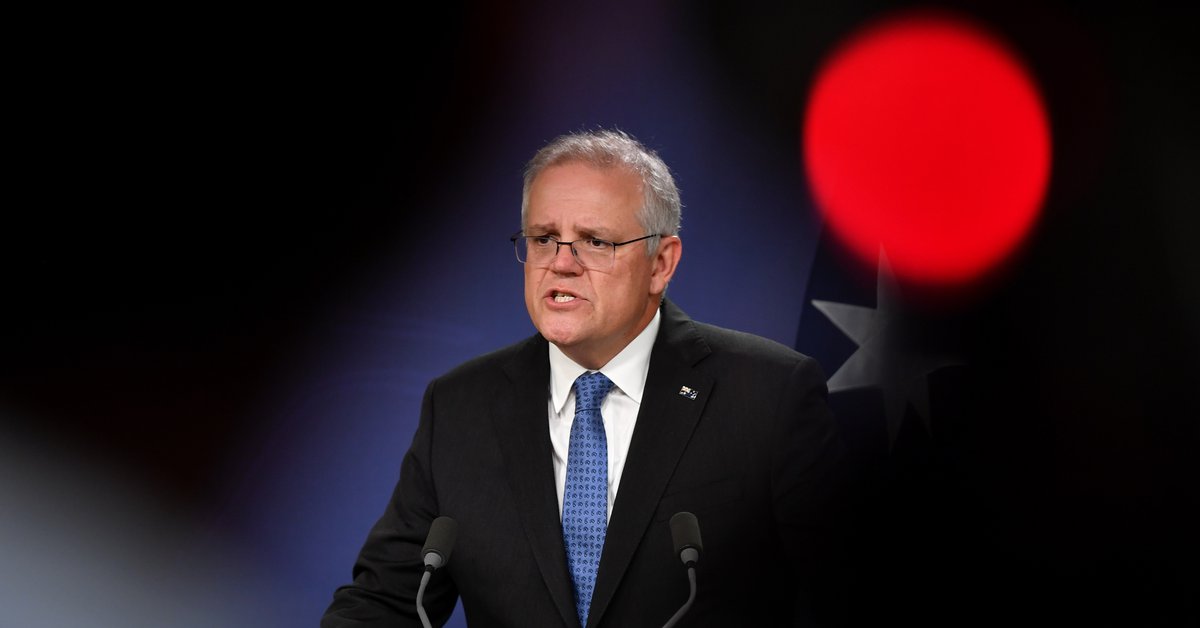Australia has withdrawn from the “New Silk Road” sponsored by China, to the ire of Beijing

Australian government On Wednesday, it opposed two agreements between China and the Victoria region under the Belt and Road Initiative (BRI). Due to “contradictions” with the foreign policy of the peripheral country, then Beijing on Thursday demanded to back down and threatened to respond “harshly”.
According to Chinese Foreign Ministry spokesman Wang Wenbin, citing local newspapers, Canberra’s decision is a “backward step” that will further worsen the deteriorating relations between the two countries. “It is another confirmation that Australia has no sincerity in developing bilateral relations (with China). “, He said.
For the first time, the Australian government exercised powers to veto agreements between the country’s jurisdictions and foreign states, claiming that they defend the national interest and that Signing these agreements to create the “New Silk Road” implies “contradictions” with the foreign policy established by Canberra.
The agreements involved are Memoranda of understanding signed in 2018 and 2019 Although, according to the Australian press, Victorian regional authorities are not obligated to implement specific projects and are not legally binding.
however, China has submitted “official and resolute complaints” to the Australian authorities, asking them to reverse their decision, saying that the agreements between Beijing and the island state are beneficial to both parties.

The Belt and Road Initiative, known as the “New Silk Road”, was inaugurated in 2013 by order of Chinese President Xi Jinping, and it seeks to improve trade links between Asia, Europe, Africa and other regions through the construction of ports, roads and railways. And airports and industrial areas. Projects are funded with Chinese investment or millions of dollars in loans. Many Western countries and China’s regional rivals viewed the initiative with suspicion, seeing it in Beijing’s interest in increasing its political and economic influence.a.
Australian Federal Government, Irrationally “He vetoed this cooperation agreement,” said spokesman Wang Wenbin. This is an arbitrary interference with normal cooperation. This represents Causing serious damage to the Australian-Chinese relations and the mutual trust between the two countries“, he added.
“The Chinese side reserves the right to take additional measures in this regard.”The spokesman insisted, who denounced the Australian authorities reviewing more than 1,000 international agreements and canceling only four of them, “two of which are related to China.”
According to the Australian government, the agreements were canceled because they are inconsistent with the country’s foreign policy, which calls for a “free and open” Indo-Pacific region.

Increased tensions between these two countries led to A. Trade conflict after Beijing slapped tariffs on several Australian exports to the Asian giant.
A senior official at the Chinese embassy in Canberra recently blamed this negative stance on the Australian government’s decision in 2018 to exclude Chinese telecom company Huawei from 5G networks.
The relationship was further strained when Australian Prime Minister Scott Morrison called last year for an international investigation into the origin of the Covid-19 epidemic.
Peripheral nation He passed a series of laws to prevent alleged foreign interference in the country’s politics and economy, without directly citing China, the suspect in potential computer attacks against universities and government entities.
With info from AFP, EFE and EuropaPress
Read on:




:quality(85)/cloudfront-us-east-1.images.arcpublishing.com/infobae/P3M34YHXTVFZTCYTQQSSPRA4ZM)